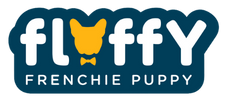Frenchie Diet; Commercial v Home prepared
French Bulldogs tend to be real “foodies” and will eat almost anything put in front of them, with speed and enthusiasm. However, they are often prone to gastrointestinal sensitivities. And they have a tendency to choke if they gulp their food due largely to their short noses. As a result, many people wonder: what is the correct diet for a Frenchie? There is no absolute right or wrong food for French Bulldogs and what you decide to feed them will depend upon your personal preferences, availability of different products, your dog’s health and life stage, and convenience for the family.
You should consider what your personal preferences are regarding feeding your pet. Do you prefer to feed a dry kibble? Wet food? Would you like to feed home prepared diets or even raw food? None of these options are wholly right or wrong, but there are always advantages and disadvantages to consider. Whatever your choice of diet, do ensure that fresh, clean water is always available for your dog.
Puppy nutrition
“Mush” is one of our go-to secrets for producing healthy puppies that thrive. This is a delicious mixture of nutrients, protein and flavor that is simply irresistible. We serve this to our puppies starting at 4-5 weeks until they are about 7 weeks and then start with soften Royal Canin puppy.
- 7 cans Royal Canin puppy starter
- 16oz puppy milk formula
- 16oz blended puppy food (Royal Canin medium puppy)
- 1 can Pumkin
- Add baby rice formula as needed to thicken
Commercial dog foods
For convenience, in busy households, a commercial pre-prepared food is often the optimal choice for your Frenchie. Some of these diets are specifically formulated for French Bulldogs.
Commercial diets for dogs are often formulated for pets at different life stages. These life stage diets are usually marketed as “puppy”, “adult” and “senior” diets.
Puppy
As the names suggest, “puppy” foods are generally formulated to provide nutrients for growth, particularly the development of healthy bones and teeth. They generally provide a nutrient-dense diet suitable for small mouths and tummies.
Adult
“Adult” dog foods are formulated for adult dogs needing less nutrient-dense food than growing puppies. These foods should support your adult French Bulldog up until around seven or eight years of age.
Senior
Finally, “senior” diets are available which help to support your dog through their later years. At this stage of life, dogs tend to be less active and prone to weight gain, so these foods are formulated with this in mind.
There are two main types of commercial dog food to consider. These are either dry kibble or wet foods. Take care not to confuse “mixer” foods with complete dry kibble diets. Mixers need to be mixed with other foods to provide a complete diet for your Frenchie. They are often used to bulk out wet pet foods which provide the main nutrients your dog needs.
A commercial dry kibble food is often the easiest and most convenient for busy dog owners. These foods are usually a complete diet and will provide all the nutrients your dog requires. Make sure you use the correct dry food for your Frenchie’s life stage. Consider buying a kibble specially formulated for French Bulldogs, as these will be specific to the breed’s needs.
Wet commercial dog food usually comes in tins or pouches and is in many ways similar to dry kibble, in that it is formulated to be nutritionally balanced. However, unlike kibble it will need to be stored in a fridge once the packet is opened. Any uneaten food will need to be promptly cleared away to prevent your Frenchie inadvertently consuming spoiled food, especially in warm weather.
A Frenchie’s Nutritional Needs
| Adult French Bulldog Nutritional Needs | |
| Calories Per Day | 750 (for a 30-pound dog) * |
| Protein (crude) | ~20% |
| Fat (crude) | ~5—10% |
| Fiber (crude | ~1—7% |
*On average, an adult French Bulldog typically requires between 25 to 30 calories per pound of body weight per day.
Raw Food Feeding
Finally, raw food feeding is something which has become quite popular with many French Bulldog owners. As with any type of diet there are many pros and cons to consider. A dog fed with raw food should still receive a balanced diet which is able to provide for all their nutritional needs, taking into consideration their life stage, (puppy, adult or senior), their general activity levels and any specific health concerns. The raw food itself should be of human grade and you may wish to purchase the ingredients yourself or feed a pre-prepared commercial raw food diet.
When feeding your pet a raw diet, good food hygiene is essential. Uncooked meat can carry bacteria such as E. coli and Salmonella as well as parasites such as tapeworm. Many of the bacteria found in raw meat can cause serious gastrointestinal problems for humans and sometimes animals too, so always ensure that the raw food is kept well away from human food and any food preparation areas which are used by the people in your family. The biggest risk is the “doggie kisses” which will usually end up containing the bacteria from the diet – so this might not be the best option if there are very vulnerable or frail people in the household.
You can see that there are many different options available when you are deciding which food to give your Frenchie. Just as when feeding any other breed of dog, the best food for your Frenchie will depend upon multiple individual factors. If you would like advice about feeding your pet, or if you have concerns about your French Bulldog’s diet, you should speak to your local vet or vet nurse, who have been trained in dog nutrition and will be able to provide further information.
Benefits of a Raw Diet
While a raw diet might not be right for every French Bulldog, there are several reasons many Frenchie owners prefer to feed dogs raw rather than turning to traditional commercial dog foods.
- Joint health — French Bulldogs are prone to conditions like hip and elbow dysplasia, which can especially happen as they get older. Some Frenchie’s that eat raw will experience fewer joint issues and a reduced risk of developing degenerative bone and joint conditions.
- Allergy relief — Some French Bulldog s are prone to allergies, particularly skin allergies which cause itching and inflammation. A raw diet may help relieve some of these symptoms and keep your Frenchie’s skin hydrated and enriched to prevent future allergic reactions.
- Dental health — Many older French Bulldog s will experience dental disease, especially if they are eating dry food high in starch and carbohydrates. A raw diet is naturally much lower in carbs and can help keep your pup’s teeth cleaner for longer.



